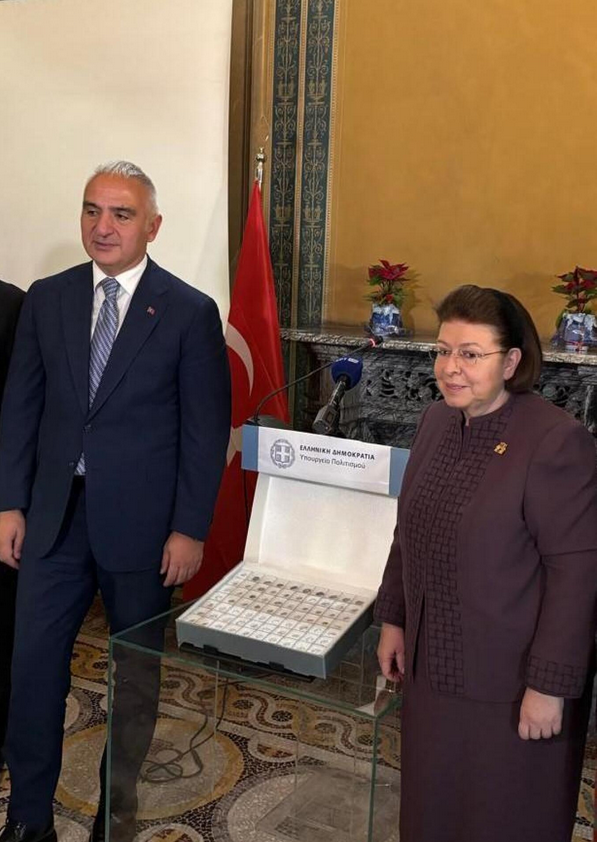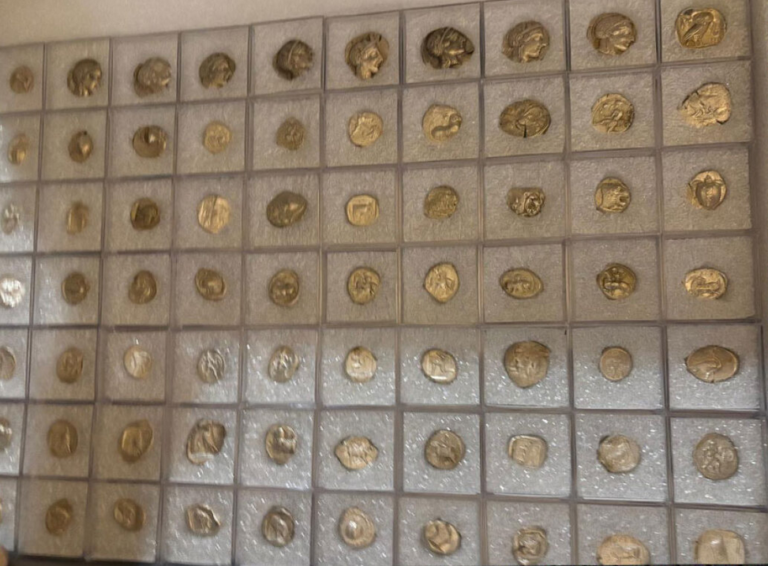Greece sends a strong message against antiquities trafficking and the illegal trade of cultural goods by handing over 1,055 ancient coins to Turkey. These coins, dated from the early to late 5th century BC, were seized in 2019 on Greek soil from a Turkish national who attempted to illegally import them into the country. The coins were officially delivered by the Greek Minister of Culture, Lina Mendoni, to the Turkish Minister of Culture and Tourism, Mehmet Nuri Ersoy, during a ceremony held at the Numismatic Museum.
According to the Permanent Three-Member Evaluation Committee’s report on the monetary value of ancient coins, the collection includes 61 silver staters (didrachms) minted in cities such as Pamphylia, Cilicia, Ionia, Cyprus, Aegina, and Milos, as well as 994 Athenian silver tetradrachms, including a rare one with bronze impurities. The coins were part of a hoard likely hidden in Asia Minor in the late 5th or early 4th century BC.

The handover adheres to the 1970 UNESCO International Convention and the bilateral “Protocol on Preventing and Combating the Illegal Import, Export, and Transfer of Cultural Property,” signed by Greece and Turkey in Istanbul on March 4, 2013.
In July 2019, during a customs inspection at the Kipi border in Evros, Greek authorities discovered the coins concealed inside water bottles camouflaged with opaque duct tape at the bottom of a bag containing food. The bag was found on a bus arriving from Turkey. The Turkish national carrying the coins admitted that unknown individuals had approached him and offered him €1,400 to transport the Lydian coins to Germany.

Following their confiscation, the coins were transferred to the Numismatic Museum for thorough examination. Photographs were then shared with Turkish authorities via the Greek Ministry of Foreign Affairs, which confirmed the findings. After the judicial proceedings concluded with a conviction against the Turkish national, Greece and Turkey engaged in discussions to facilitate the collection’s return.
“For Greece, the repatriation of every cultural artifact illegally removed from our land brings great joy and satisfaction,” stated Minister Mendoni. She emphasized Greece’s sensitivity to repatriation issues as a country that has suffered from theft, looting, and illegal trade of cultural treasures. Mendoni reaffirmed Greece’s belief that all illegally exported antiquities should return to their countries of origin, aligning with UNESCO principles and international agreements.

She also thanked Turkey for supporting Greece’s national demand for the reunification of the Parthenon Sculptures in Athens but hinted at occasional non-compliance by Turkey with UNESCO’s cultural heritage management guidelines. “We return antiquities to their rightful owners, as this is lawful, ethical, and correct. Today, Greece restores the damage by returning these coins to Turkey, adhering to UNESCO principles and our bilateral agreement,” Mendoni stated, concluding with a reminder: “We all share responsibility for preserving our culture and historical memory.”
Ask me anything
Explore related questions





